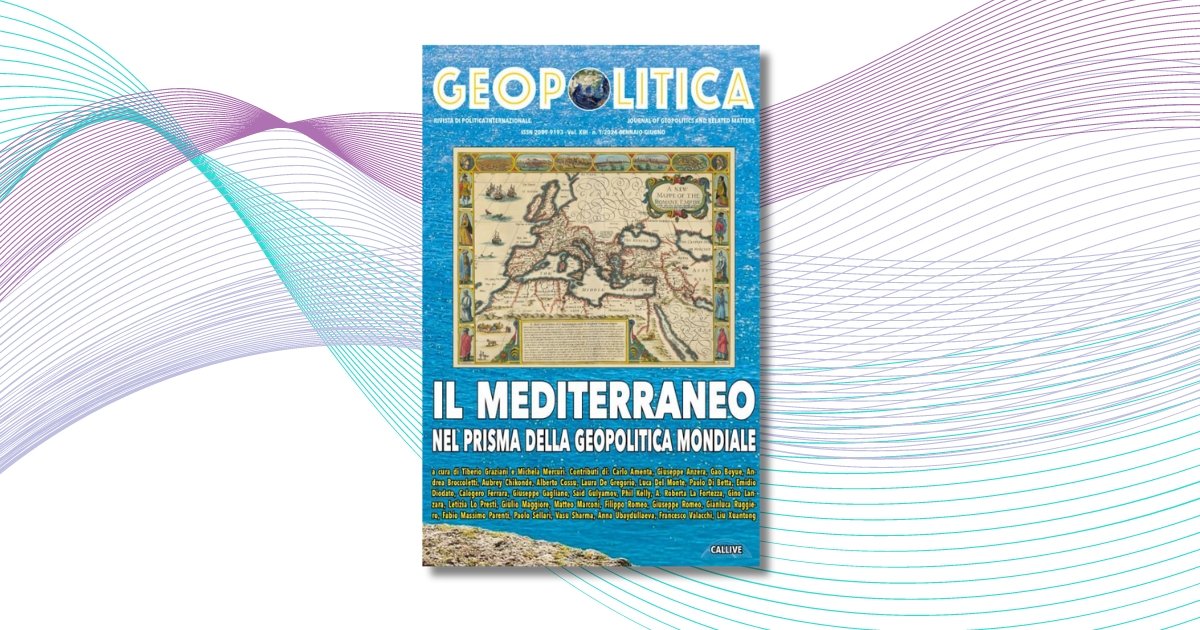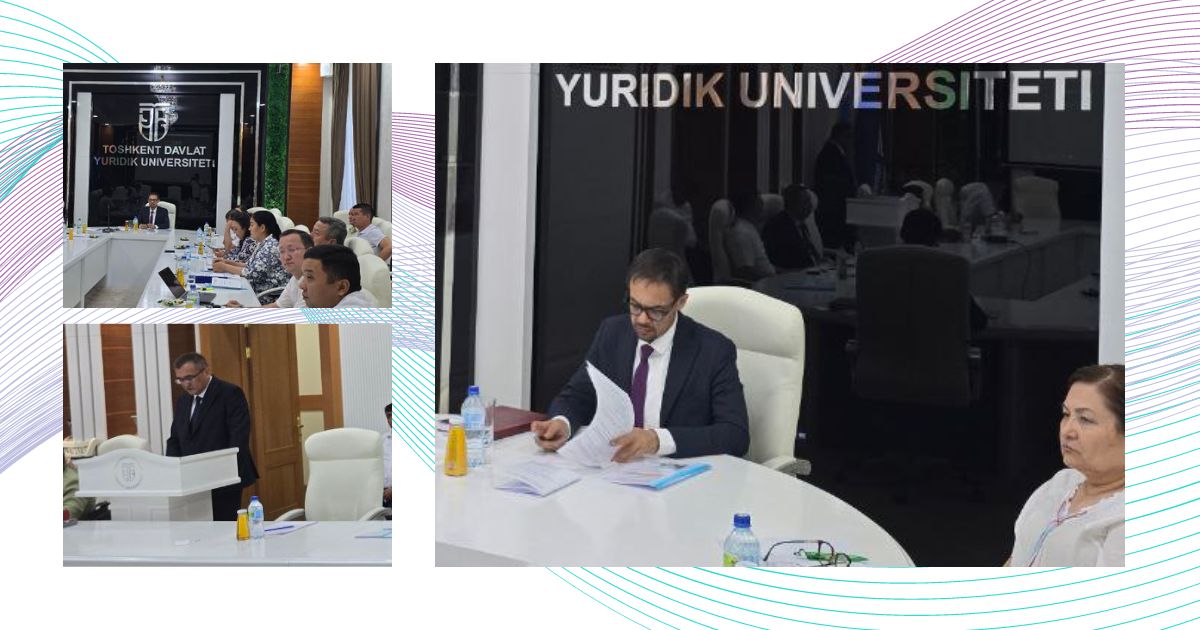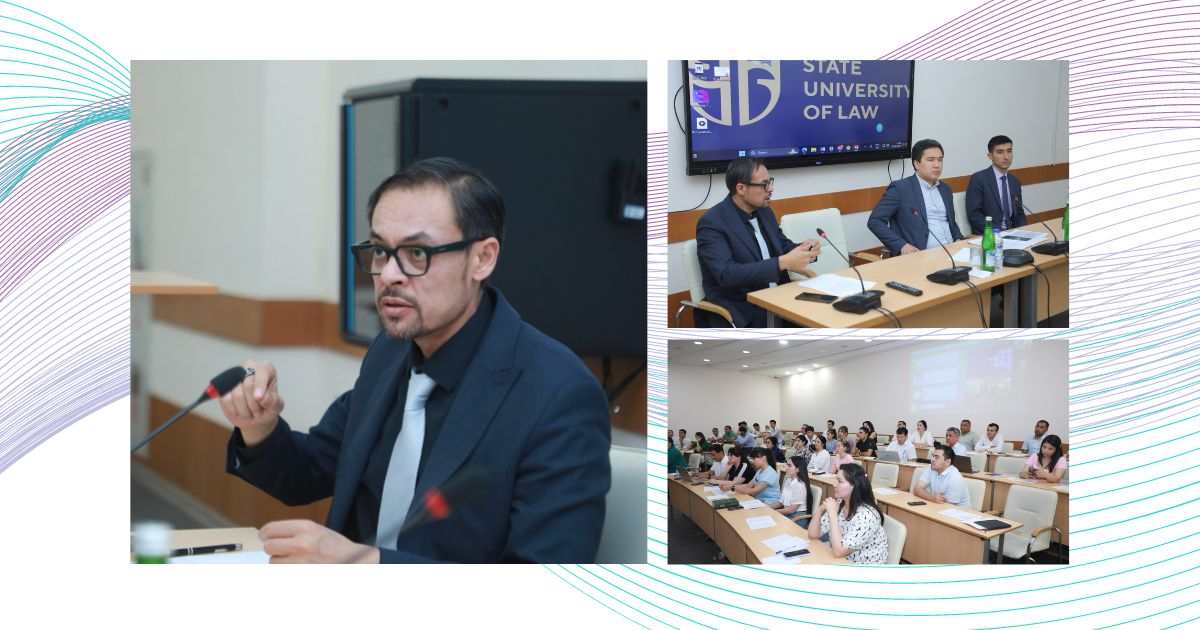On April 16, 2024, Professor Said Gulyamov, Head of the Cyber Law Department at Tashkent State University of Law (TSUL), participated in a crucial meeting with representatives from India’s prestigious National Forensic Sciences University (NFSU). The meeting was attended by Shankar Onkar Junare, Dean of the Faculty at NFSU, Professor Purvi Pokhariyal, and Chetan Mukundan, a researcher from the Axxonet Research Center. The discussion focused on establishing a joint master’s program between TSUL and NFSU.
As a result of the negotiations, an agreement was reached to organize a joint master’s program in “Cyber Crime Law and Digital Forensics” between TSUL and NFSU. Within the framework of this program, students who have completed their bachelor’s degree in the legal field will be admitted, and they will study at the campuses of both universities during the educational process.
This collaboration will allow for the study and application of India’s advanced experience in the field of digital forensics. NFSU professors will provide modern knowledge and skills to TSUL students and undergraduates in this area. Moreover, Indian experts are expected to visit TSUL to share their experiences through seminars and master classes.
Furthermore, during the meeting, the prospects of implementing joint research projects between TSUL and NFSU were also discussed. The establishment of scientific cooperation between professors and researchers of both universities, joint publication of scientific articles, and participation in international conferences were considered. Such collaboration serves to develop and implement innovative ideas in legal sciences, particularly in the fields of cybercrime and digital forensics.
According to the agreement, this innovative joint master’s program is planned to commence its activities from September 2024. These initiatives will contribute to the transformation of TSUL and NFSU into prestigious international scientific and educational centers, as well as further develop the strategic partnership between Uzbekistan and India. The joint master’s program and scientific projects are essential for improving the quality of legal education and introducing innovative achievements into practice.







